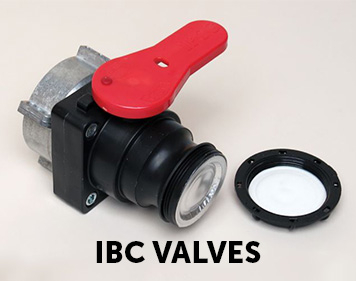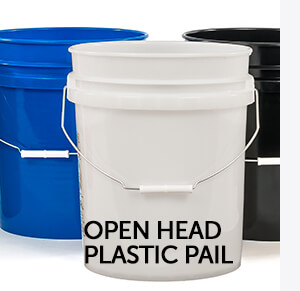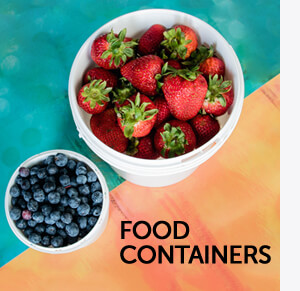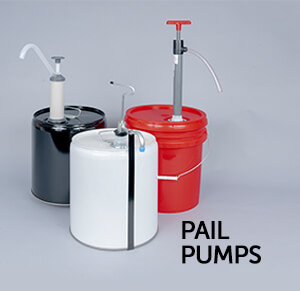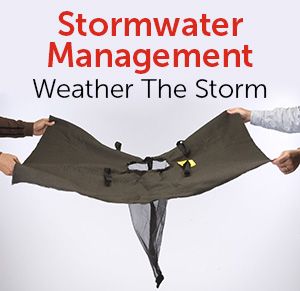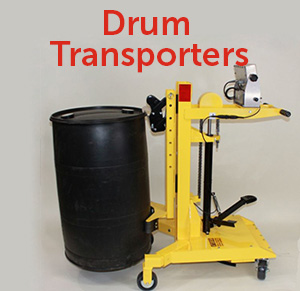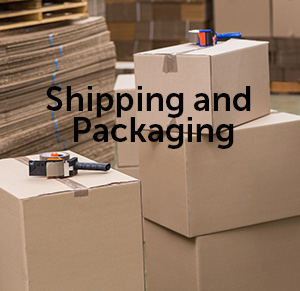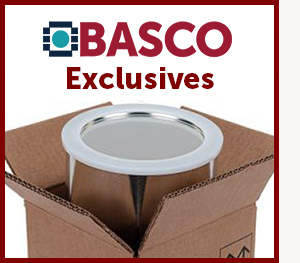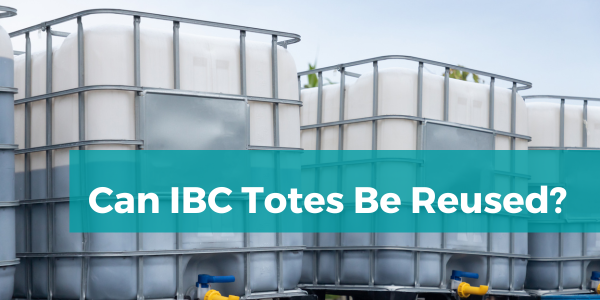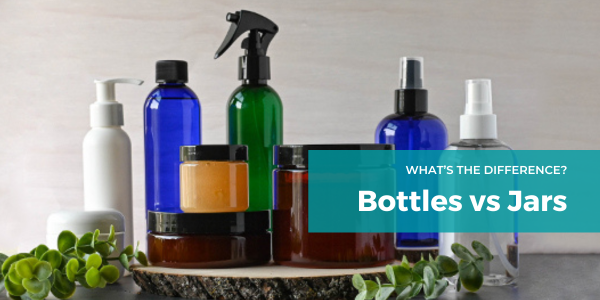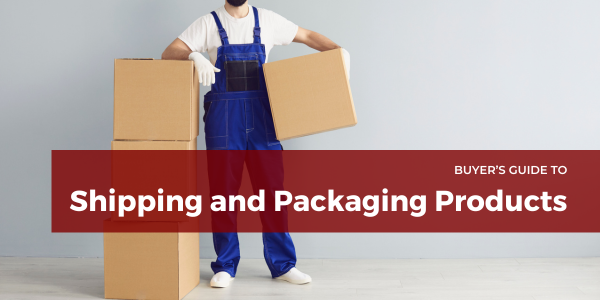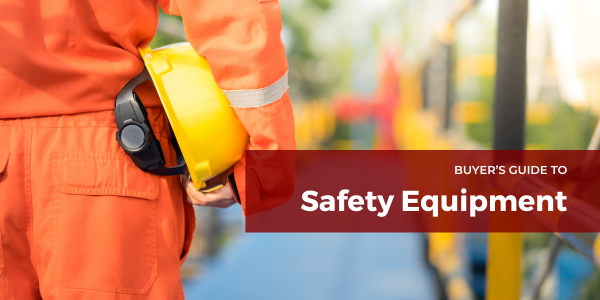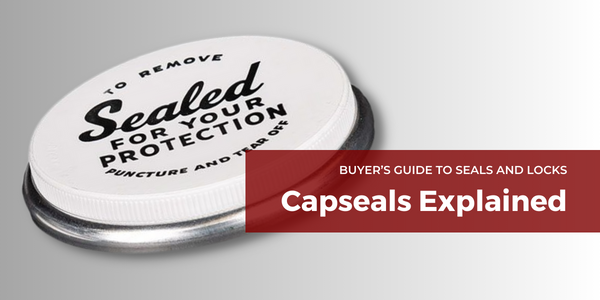Can IBC Totes be Reused?
Recycling, Reconditioning, Rebottling, and More Ways to Reuse Your IBC Totes
In today's environmentally conscious world, the demand for sustainable packaging solutions is on the rise. Industrial packaging, such as Intermediate Bulk Containers (IBCs), plays a significant role in various industries, including chemicals, food processing, and agriculture. Poly IBC totes, which are commonly made from high-density polyethylene (HDPE), are favored for their durability and versatility. However, a crucial question arises: Can poly IBC totes be reused and recycled? In this blog post, we will delve into the recycling potential of poly IBC totes, exploring the recycling process, environmental benefits, and best practices for sustainable disposal.


Understanding the Recycling Potential of Poly IBC Totes
Poly IBC totes are indeed recyclable, offering a sustainable solution for industrial packaging. The recycling process for poly IBC totes typically involves the following steps:
-
Collection: Poly IBC totes can be collected through specialized recycling programs, waste management companies, or dedicated recycling centers. It is important to ensure that the totes are thoroughly cleaned and free from any hazardous or non-recyclable materials before collection.
-
Sorting: Once collected, the poly IBC totes are sorted based on their material composition. This step helps separate HDPE totes from other types of plastics, allowing for efficient recycling.
-
Shredding and Washing: The sorted HDPE totes are then shredded into small pieces and washed to remove any contaminants. This process ensures that the recycled material is clean and ready for further processing.
-
Melting and Extrusion: The shredded HDPE is melted down and formed into small pellets or flakes. These pellets serve as the raw material for manufacturing new plastic products, including IBC totes, containers, pipes, and more.
Environmental Benefits of Recycling Poly IBC Totes
Recycling poly IBC totes brings about several environmental benefits:
- Conservation of Resources: By recycling poly IBC totes, we reduce the demand for virgin plastic, conserving valuable natural resources and reducing the reliance on fossil fuel extraction.
- Energy Savings: The recycling process consumes less energy compared to manufacturing new plastic from raw materials. Recycling poly IBC totes helps reduce greenhouse gas emissions associated with plastic production.
- Waste Reduction: By recycling poly IBC totes, we divert them from landfills, minimizing the environmental impact and reducing waste accumulation.
Best Practices for Sustainable Disposal of Poly IBC Totes
While recycling is a preferred option, there are additional considerations for the sustainable disposal of poly IBC totes:
- Reuse: Before considering disposal, explore opportunities for reusing poly IBC totes within your industry or supply chain. They can often be repurposed for storage, transport, or other applications, extending their lifespan and reducing waste.
- Responsible Disposal: If reuse is not possible, ensure responsible disposal by sending the totes to reputable recycling facilities or waste management companies that specialize in recycling HDPE plastics.
- Follow Local Regulations: Familiarize yourself with local regulations and guidelines regarding the disposal and recycling of poly IBC totes. Some areas may have specific recycling programs or restrictions on plastic waste disposal.
Poly IBC totes, made from HDPE, can indeed be recycled, offering a sustainable solution for industrial packaging. Through proper collection, sorting, shredding, and melting processes, these totes can be transformed into new plastic products, conserving resources and reducing environmental impact. Consider reusing poly IBC totes whenever possible, and if disposal becomes necessary, ensure responsible recycling or disposal following local regulations. By embracing recycling practices, we contribute to a more sustainable future and minimize the impact of plastic waste on our planet.
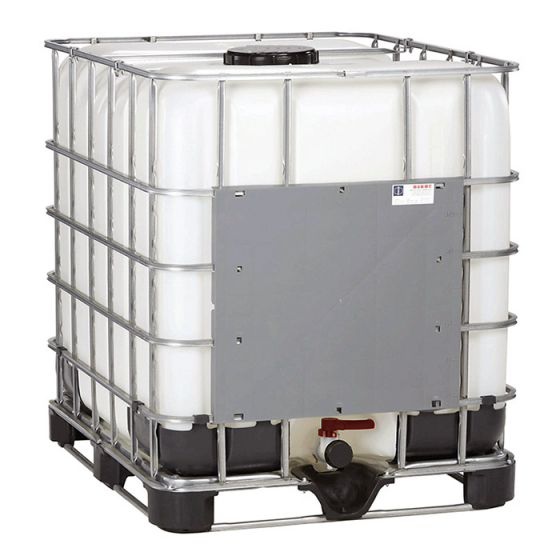

What if I Want to Keep My IBC and Reuse it? Can IBC Totes Be Reused Instead of Recycled?
While recycling is always a great option to reduce your impact on the environment, reducing and reusing are arguably more effective at that, while also lessening the impact on your wallet. IBC totes can be reused in industrial applications through processes known as reconditioning or rebottling.
Reconditioning
A reconditioned IBC is profesionally and expertly cleaned, repaired, tested, and inspected by a member of the Reusable Industrial Packaging Association (RIPA). The reconditioning process varies depending on the spec of the container and what was previously stored within it. Reconditioned IBCs can't typically be utilized for containing foods and beverages, but they're excellent options for other applications.
Rebottling
A rebottled IBC is similar to a reconditioned tote; both are cleaned, repaired, tested, and inspected, but a rebottled IBC is replaced with an entirely new plastic bottle. The original bottle is cleaned out and recycled, and a brand-new bottle and valve are installed in the original cage. As far as your product is concerned, it's a good as new IBC tote.
With both of these processes, the cage and bottle may feature slight imperfections that do not affect the performance of the container. Both options are effective for cutting down on costs, as they're never as expensive as a brand new IBC tote.
Reusing Your Own IBC
If you already have an IBC that has previously contained materials that you no longer are storing within it, it's also possible for you to simply reuse the IBC itself. While this always depends on what was previously stored in the container, it can be as simple as cleaning it out to the best of your ability and refilling the container. If you're simply refilling it with the same material or product, then the process is as easy as opening the fill cap and inserting your material. If you're refilling the IBC with a new material, then things can be slightly complicated.
For instance, if you previously stored hazardous materials in your IBC, and you plan to refill it with drinking water, that's a no-go. An IBC that has previously contained hazardous material could contain trace amounts of residue that could be harmful to your health. An IBC that has contained hazardous materials should always be considered unsafe for food or beverage storage. You also shouldn't replace one hazardous material with another, as they always have the possibility of causing a chemical reaction when they come into contact.
Can IBC Totes Be Reused for Farming Applications?
Yes! One of the most common applications for reusing IBC totes is for farming. An IBC that has previously contained inert, non-hazardous materials is perfectly fine for storing things like water or fertilizer. IBCs are also commonly used for aquaponics, allowing you a safe and effective method for growing plants and farming fish.
Do you need plastic bottles and f-styles in your industry? Contact us today!
With over 75 years in the packaging game, BASCO has seen it all. Even the most niche of industries have trusted us to provide them with the packaging they need, at a price that's fair. We're here five days a week, ready to answer the phone or respond to your emails, and help you find the perfect container for the job. Contact us here if you have any questions!


